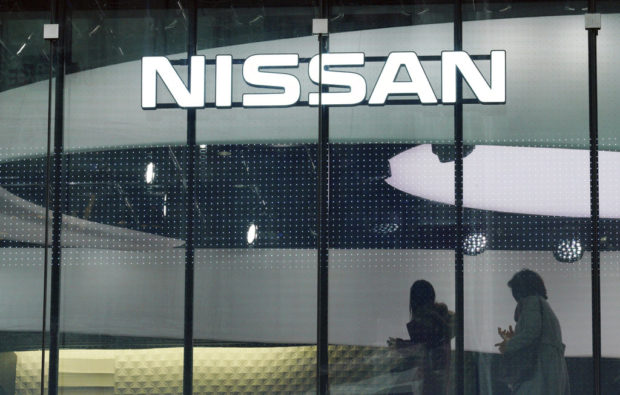TOKYO — Nissan fired Carlos Ghosn as chairman Thursday, ending his nearly two decade reign at the Japanese automaker due to alleged serious misconduct, including under-reporting of his income and misuse of company assets.
In an hours-long meeting, the company’s board of directors voted unanimously to dismiss Ghosn as chairman and as a representative director, Nissan Motor Co. said in a statement.
Earlier this week, alliance partner Renault voted to keep him as its chief executive but appointed Thierry Bollore, its chief operating officer, as its interim chief.
Greg Kelly, who was arrested on suspicion of collaborating in the wrongdoing, will also be dismissed as representative director, Nissan said. The replacements will be decided later, it said.
Ghosn is suspected of under-reporting $44.6 million in income from 2011 to 2015, according to Tokyo prosecutors.
Nissan’s board consists of nine members, including Ghosn and Greg Kelly. The seven other board members voted at the meeting, including two members from Nissan and two from Renault.
Ghosn and Kelly will remain on Nissan’s board for now as that decision will be up to shareholders. No date has been set yet for a shareholders meeting.
Ghosn, 64, is also chairman at Mitsubishi Motors Corp., a smaller Japanese automaker that’s partnering with the Renault-Nissan alliance. It said it was scheduling a board meeting for next week.
Ghosn and Kelly have been held at a Tokyo detention center since their arrests Monday.
Under Japanese law, suspects can be held for 20 days per possible charge without an official indictment.
Additional charges can be tagged on, resulting in longer detentions. Neither has been charged so far.
The maximum penalty upon conviction for violating finance and exchange laws is 10 years in prison, a 10 million yen ($89,000) fine, or both.
A French citizen born in Brazil, Ghosn became something of a corporate superstar in Japan, leading Nissan’s revival from near bankruptcy after Renault sent him to help in 1999. The Renault-Nissan-Mitsubishi alliance led
the industry with sales of 10.6 million vehicles in 2017.
Ghosn served as Nissan’s chief executive from 2001 until last year. He became chief executive of Renault in 2005, leading the two automakers simultaneously. In 2016, he also became chairman of Mitsubishi Motors Corp. after Nissan took it into the alliance.
Kelly, 62, joined Nissan, maker of the Leaf electric car and Infiniti luxury models, in the US in 1988. He became a board member in 2012. His background is in human resources and alliance management.
Analysts say the future of Nissan’s alliance with Renault may be at stake, though the statement Thursday said the company’s leadership was determined to minimize the impact from Ghosn’s case on the partnership. Renault owns 43 percent of Nissan, and Nissan owns 15 percent of Renault.
Some within Nissan, including its current CEO Hiroto Saikawa, chafed at Ghosn’s leadership. In a lengthy news conference on Monday, Saikawa said it was time for a change, and that too much power was concentrated in Ghosn, with too little credit given to the many others working for the company’s success.
Janet Lewis, managing director and head of industrial research, Asia, at Macquarie Capital Securities in Tokyo, said in an interview that an adjustment was needed to give Nissan more say in the alliance with Renault.
The partnership remains crucial for both companies, she said, since apart from financial ties the companies share technology and parts.
The automakers need to be more like roommates than a married couple, “So they have to find a way to share their house and share all of their expertise because it’s very necessary in terms of new automotive technology, new platform development,” Lewis said.
“They need to figure out how they can continue this and still live happily together in the same house.” /ee
